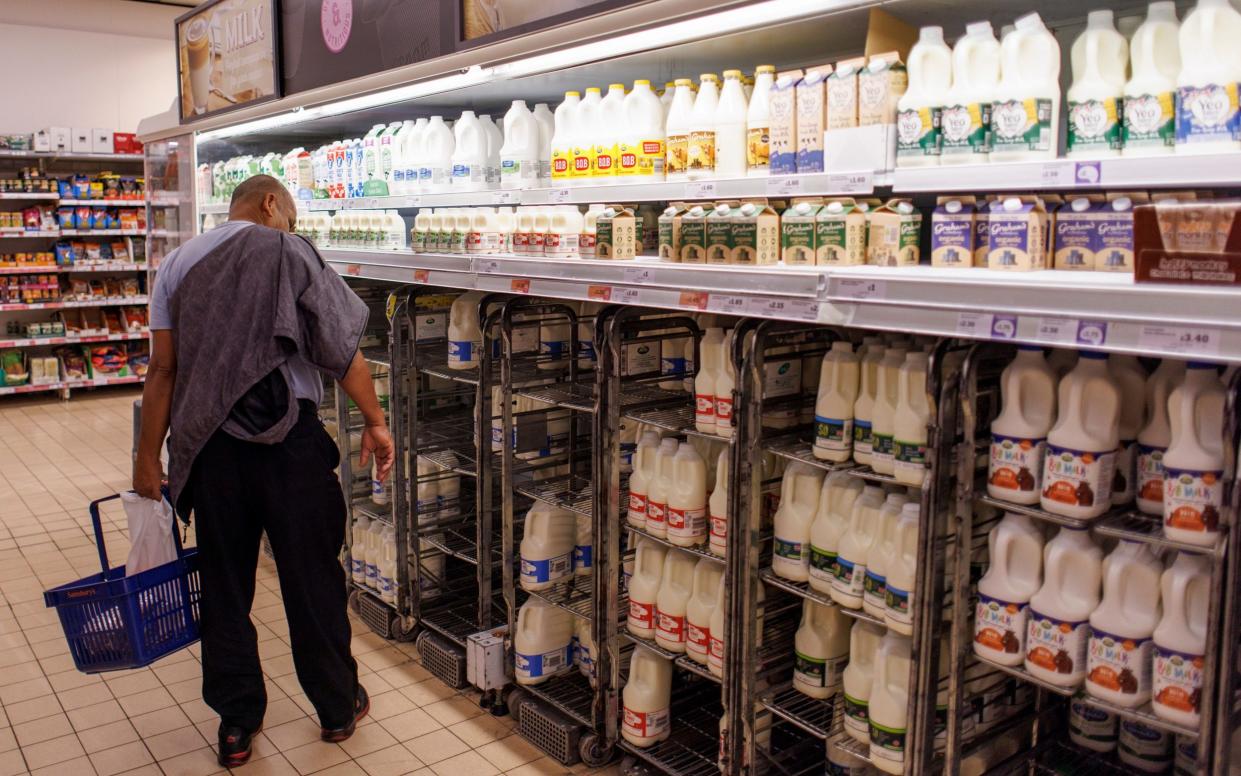Supermarket inflation slows for fifth month in a row as food staples get cheaper

Supermarket inflation has slowed for the fifth month in a row, boosting hopes that the spate of surging prices in the aisles may be coming to an end.
Grocery price inflation fell to 12.7pc in the four weeks to August 6, down 2.2 percentage points from a month earlier in what was the second sharpest monthly drop since 2008, according to Kantar.
It came after a series of price drops across supermarkets on staples including milk, pasta, bread and cooking oils, in response to falling global commodity costs.
A litre of sunflower oil was on average 22p less in supermarkets last month compared to the spring, whilst a four-pint carton of milk was down around 19p at £1.50.
Fraser McKevitt, head of retail and consumer insight at Kantar, said prices were still higher than they were a year ago but “consumers will have been relieved to see the cost of some staple goods starting to edge down compared with earlier in 2023”.
Price cuts followed intense pressure on grocers over why falling ingredient costs had yet to filter through to supermarket shelves.
Earlier this year the Competition & Markets Authority (CMA) conducted a review into whether supermarkets were profiteering. While it found no evidence of this, the watchdog publicly called for supermarkets to lower prices where they could afford to.
Kantar said shoppers continued to spend more on own-label products to manage their grocery bills. Sales of non-branded items were up 9.7pc in the latest four-week period.
Mr McKevitt said: “The average increase in households’ weekly grocery shop is £5.13 compared with last year, well below the £11.27 extra they would have paid if consumers had bought exactly the same items as 12 months ago based on the current rate of inflation.”
Aldi and Lidl continue to win over price-conscious customers. Aldi was the fastest growing supermarket for the fourth month in a row, with sales up 21.2pc compared to last year, whilst Lidl sales were up 19.8pc over the year.
However, a fightback by Britain’s two largest supermarkets – Tesco and Sainsbury’s – is yielding results.
Tesco increased its market share and Sainsbury’s held firm at 14.8pc. Both have cut prices and introduced price matching policies against Aldi, as well as ramping up spending on their loyalty card schemes.


